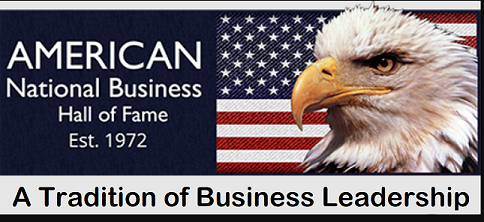Business ethics and social responsibility are topics of central importance in the work of the American National Business Hall of Fame. In addition to preserving the stories of our laureates, we have periodically conducted survey research to ascertain the general level of ethical beliefs in American business.
The first survey was conducted in 1983. A random sample of 700 of America's 10,000 largest corporations was sent a copy of the survey instrument A QUESTIONNAIRE ON ETHICS IN BUSINESS. An article reporting the results was published in the Winter, 1984 issue of THE JOURNAL OF BEHAVIORAL ECONOMICS. Click Here To Read Article
The most recent of those studies was completed in 2004 under the direction of Dr. Paul Thisthlethwaite, a professor of marketing at Western Illinois University.
| The Ethical Views Business Leaders, University Faculty and Students in The United States.
Selected Years 1983 – 2003 |
| See also, the articles on business ethics which appear in the |
| Journal of Business Leadership, Fall, 2000-2001. |
One academic treatment that deserves special mention is William C. Fredericks. Values, Nature and Culture in The American Corporation. Oxford University Press, 1995. Professor Fredericks identifies values that humans bring to work and which determine the ethical climate within the corporation. The perspective which he provides explains why the founders of the American National Business Hall of Fame believed that preserving the stories of the leaders of the past should be part of the knowledge base of the business leaders of the future.
For a far simpler view of how our laureates thought about business ethics, view the hall of fame slide show on business ethics . You will find it on this web site. (Business Ethics)
Hall of fame laureates with stories that have a special ethical twist include
| Mary Kay Ash | Wayne Hummer |
| John Bogle | James Lincoln |
| S. Truett Cathy | Herbert Taylor |
| D.J. De Pree | Marion Wade |
| Ken Hansen | Ken Wessner |
The Herbert Taylor story has an interesting “rest of the story” component. Taylor was an active member of Rotary International and served as its president. Rotary adopted Taylor’s “Four-Way Test” , thereby making the test an ethical guideline known by the more than a million Rotarians around the globe. Rotary, it turns out, has a complete ethics and social responsibility culture that mirrors the beliefs and practices of hall of fame laureates at their best. The Rotary culture contains the following elements (All elements have been trademarked by Rotary International).
|
Some laureates were Rotarians at one point in their lives. Others were never members. Yet the elements of Rotary culture described above come very close to describing the business cultures created by most hall of fame laureates.

